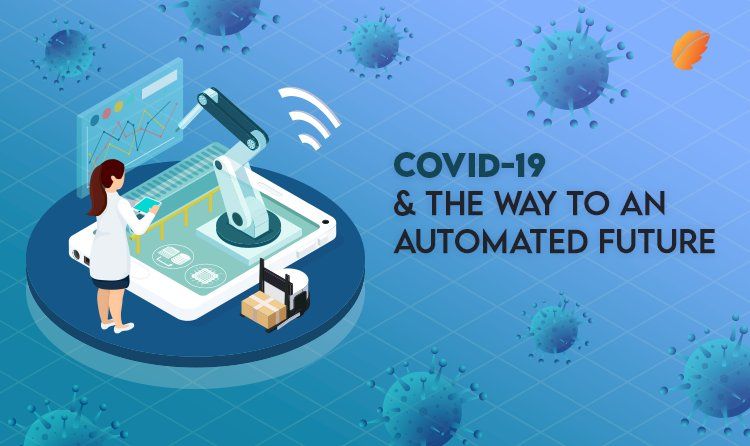To put it simply, the world has been on its toes since news of the coronavirus outbreak took the headlines by storm. Life has come to a halt, and governments are trying really hard to find out ways of combating this pandemic to the best of their capacities.
To put it simply, the world has been on its toes since news of the coronavirus outbreak took the headlines by storm. Life has come to a halt, and governments are trying really hard to find out ways of combating this pandemic to the best of their capacities.
Millions of employees around the world have started working from home in the midst of this current situation. Countless retail businesses are having a hard time to take care of the supply, and customers too in their panic, have held up the stock of multiple items that range from toilet paper to food essentials.
In Wuhan though, which is the epicenter of the COVID-19 outbreak, Chinese E-commerce brand JD tested autonomous delivery robots and ran its fully automatic warehouses for 24 hours each day to manage the increase in demand of items. With people locked down in their homes, the requirement of autonomous machines has never been more pronounced, where they are something more than mere concepts.
A future that relies on automation was already coming, but given the epidemic, it has led to the acceleration of this particular process. Problems and issues which existed in the Artificial Intelligence (AI) sector have been exposed. Just being aware of catchy words and the hype surrounding this concept might have been a hindrance in taking accurate note of the progress.
If things actually need to be accelerated for getting to an automated future quickly, there are some much-needed reforms that need more attention than ever-
1. A New Set of Evaluation Metrics
With more and more autonomous machines finding deployment in the outside world, the usual metrics like cycle time, speed and success rates are no longer the accurate providers of the complete scenario.
This is what needs to be done in this case-
- We need to evaluate system reliabilities under uncertain situations with metrics like the degree of human intervention in particular automated processes.
- More standards and industry tools that are capable of conducting an overall evaluation of system performance under multiple cases as real-life scenarios come with a lot of uncertainty.
A few years ago, DevOps arrived on the scene to cut the development cycle short and provide top-notch software. In comparison, AI and ML are pretty new. However, MLOps and AIOps are increasingly being used, marking a crucial shift from just AI/ML based research to their use in actual products.
2. Redesigning Communication & Error Handling
We might be years away from getting fully autonomous solutions, but robotics is still pretty able to bring immediate utility for us. Even if involved in the operations to a certain degree, companies can bring about a considerable reduction in labor and other costs.
There is a need to come up with different categories for errors at different levels, design appropriate protocols and ensure that taking care of fatal errors is the first priority in every such case where a system can stop and will need human involvement to take care of.
Detecting those errors which are untraceable by the system too is another difficult facet to come to terms with, highlighting the importance of two-way communication, allowing users to mark errors or bring a contingency plan in effect.
3. Redefining Interaction Between Machines & Humans
Coronavirus has forced a huge number of companies in USA to make a quick shift to the cloud through the adoption of automation. Because there are just a handful of people who are charged with managing a large fleet of robots, it is yet to be seen if there are right kinds of technologies with us to ensure that information is quickly transferred for swift decision- making.
When it is about providing input to robots, we normally rely on machines like tablets or computers. But, with time, as the information pile keeps on increasing and response time needs to be more efficient, looking into the technologies of AR/VR might provide a lot of answers to revolutionize human-machine interaction.
The current pandemic is definitely playing its role in making us look for them quickly so that we can make sure that these futuristic and autonomous models are able to deliver when needed.
The above points will definitely prove to be a lot of help to the producers of such systems in making breakthroughs quickly.
If you are in need of sophisticated mobile applications and web products, Consagous Technologies is the leading Web and mobile development company USA, dedicated to give you cutting-edge solutions for your requirements.
Original Source:
https://www.consagous.co/blog/covid-19-the-way-to-an-automated-future





